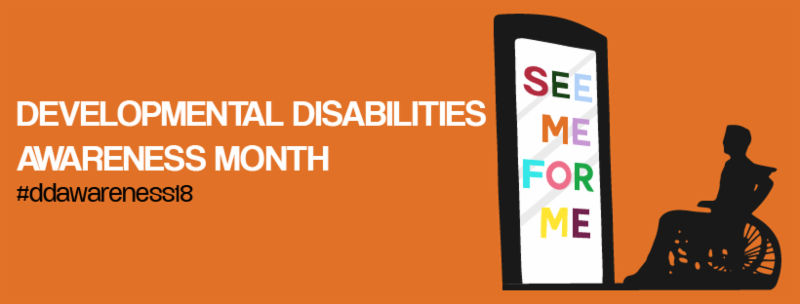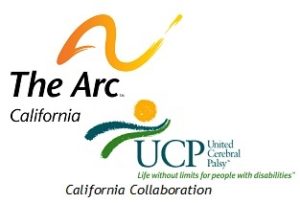by Teresa Anderson, MPH

For more than 30 years we have recognized March as Developmental Disabilities Awareness Month. I want to take a few minutes to look at the original proclamation and appreciate it for what it meant at the time. I also want to take this opportunity to recognize how far we have come and how far we have yet to go in order to truly honor this year’s campaign theme SEE ME FOR ME:
The original proclamation
Proclamation 5613
National Developmental Disabilities Awareness Month, 1987
February 26, 1987
By the President of the United States of America
Nearly four million Americans have grown up with severe physical or mental impairments that have slowed their learning, limited their mobility, inhibited their expression, and rendered them dependent on others for care and assistance.
For many of these people with developmental disabilities there is now the prospect of a brighter future and greater opportunity. Americans are becoming increasingly aware that such disabilities need not keep individuals from realizing their full potential in school, at work or at home, as members of their families and of their communities.
New opportunities have been created through the efforts of those with developmental disabilities and their family members, along with professionals and officials at all levels of government. Working together, they have brought about significant changes in the public perception of young people and adults with developmental disabilities, opening new doors to independent and productive lives.
One important new milestone is the fruitful partnership between government and the private sector in finding productive employment for people with developmental disabilities, people who might otherwise have been destined to a lifetime of dependency. In the past 2 years, the Administration’s Employment Initiative has resulted in finding job opportunities for more than 87,000 people with developmental disabilities.
The Congress, by Public Law 99 – 483, has designated the month of March 1987 as “National Developmental Disabilities Awareness Month” and authorized and requested the President to issue a proclamation in observance of this event.
Now, Therefore, I, Ronald Reagan, President of the United States of America, do hereby proclaim the month of March 1987 as National Developmental Disabilities Awareness Month. I invite all individuals, agencies, and organizations concerned with the problem of developmental disabilities to observe this month with appropriate observances and activities directed toward increasing public awareness of the needs and the potential of Americans with developmental disabilities. I urge all Americans to join me in according to our fellow citizens with such disabilities both encouragement and the opportunities they need to lead productive lives and to achieve their full potential.
In Witness Whereof, I have hereunto set my hand this twenty-sixth day of February, in the year of our Lord nineteen hundred and eighty-seven, and of the Independence of the United States of America the two hundred and eleventh.
Ronald Reagan
The original proclamation was seven short statements that mark an important time of social change built upon the advocacy efforts of people with intellectual and developmental disabilities and their families that pushed for the deinstitutionalization. The move toward deinstitutionalization was considered progressive at the time and basically a nice idea but…. It was over a decade later, (June 1999) when the U.S. Supreme Court addressed the debate about community-based living options for people with I/DD in the Olmstead decision, that the politics, policies and funding options around deinstitutionalization really began to change.
One thing we know about change is that it can be painstakingly slow and often hard to recognize some of the successes. In looking back at the original proclamation, this statement stood out far and above the rest as an indicator of success: “I invite all individuals, agencies, and organizations concerned with the problem of developmental disabilities to observe this month with appropriate observances and activities directed toward increasing public awareness of the needs and the potential of Americans with developmental disabilities.” The reason this statement stood out as a benchmark for success is because today we can’t even imagine referring to “the problem of developmental disabilities”, making this year’s theme See Me For Me even that much more poignant. Without a doubt significant strides are still yet to be met when we think about what it really means for people with IDD to have and live real, meaningful, and fully included lives across community-based living, employment and social settings.
This year’s theme See Me For Me is an important step forward in realizing the next level of success as it seeks to move beyond promoting awareness and elevates the social conversation to recognizing we as a society need to focus on inclusion and accessibility across the lifespan – education, employment, community, relationships, community leaders, and everything in between! To learn more about this year’s advocacy efforts and how you can participate in elevating the conversation visit: https://nacdd.org/ddam/


Teresa Anderson,
Policy Director
